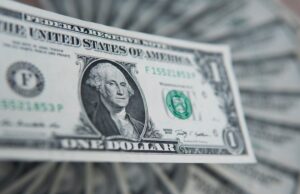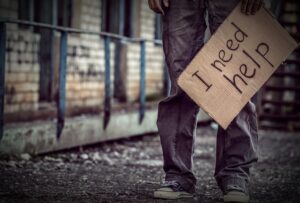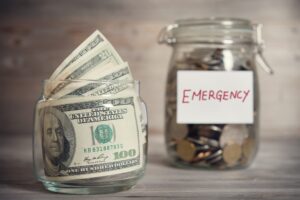
In today’s fluctuating economy, many find themselves in a never-ending cycle of financial instability. Being perpetually broke isn’t just a personal crisis; it’s a harsh reality that teaches invaluable life lessons. Here are 15 hard truths learned from the trenches of constant financial struggle, each shedding light on the deeper implications of what it means to live paycheck to paycheck.
1. The Value of Money is Relative

When you’re perpetually broke, every dollar holds immense value. This state of constant financial strain teaches you that money’s worth is not constant but varies greatly depending on your circumstances. A single dollar can mean the difference between going to bed hungry and having a meal. This harsh reality instills a profound appreciation for financial resources, emphasizing the importance of judicious spending and investment.
2. Financial Literacy is Crucial

One of the most significant lessons learned from being continually broke is the importance of financial literacy. Understanding how to manage money, save, budget, and invest are skills often learned out of necessity. Many find that their financial woes stem from a lack of knowledge about basic financial management, highlighting the need for education in personal finance as a fundamental life skill.
3. The Stigma of Poverty is Real

The experience of perpetual broke-ness brings to light the harsh stigma associated with poverty. Society often views financial struggle through a lens of personal failure, ignoring the systemic issues that contribute to economic disparity. This perspective can lead to isolation, shame, and a decreased willingness to seek help, exacerbating the problem and hindering potential solutions.
4. Emergency Funds are Not a Luxury but a Necessity

Living from one financial crisis to the next teaches the critical importance of having an emergency fund. Unforeseen expenses – such as medical emergencies or unexpected job loss – can devastate those without a financial safety net. The hard truth is that building and maintaining an emergency fund is not just prudent; it’s essential for surviving the unpredictability of life.
5. The Cost of Being Poor is High

Ironically, being broke is expensive. Higher costs for basic services, inability to buy in bulk, reliance on high-interest credit options, and penalties for late payments contribute to what’s known as the “poverty tax.” This cycle of financial penalties exacerbates the difficulty of escaping poverty, underscoring the systemic barriers faced by those struggling financially.
6. Relationships Can Suffer

Financial stress is a significant strain on personal relationships. The constant worry over money can lead to friction, misunderstandings, and a communication breakdown. Being perpetually broke can strain friendships and family bonds as financial dependencies or resentments build up over time, highlighting the need for open communication and mutual support in times of hardship.
7. Mental Health Cannot Be Ignored

The psychological toll of constant financial stress is profound. Anxiety, depression, and a sense of hopelessness can become constant companions for those struggling to make ends meet. This reality emphasizes the importance of mental health support and resources for those facing financial hardships, underscoring the need for holistic approaches to poverty alleviation.
8. The Importance of Networking and Community

In times of financial distress, the value of a strong network and community becomes evident. Support from friends, family, and community organizations can provide not just emotional sustenance but also practical assistance, such as job leads, financial advice, or temporary relief. This lesson highlights the importance of building and maintaining relationships, not just for personal gain but for mutual support and resilience.
9. Simple Living Can Be Rewarding

Perpetual financial struggle often forces a minimalist lifestyle, stripping life down to the essentials. This enforced simplicity can lead to unexpected discoveries about what truly brings joy and satisfaction. Many find that experiences, relationships, and personal growth hold more value than material possessions, offering a perspective shift on what constitutes a fulfilling life.
10. Adaptability is Key

Living on the financial edge teaches the importance of adaptability. The ability to adjust to changing circumstances, whether it’s a sudden expense or a shift in income, is crucial for survival. This constant state of flux fosters a resilience and resourcefulness that can be applied to all areas of life, demonstrating the strength and adaptability of the human spirit.
11. The Gig Economy is a Double-Edged Sword

For many perpetually broke individuals, the gig economy offers a lifeline. However, this sector’s lack of stability, benefits, and protections can also perpetuate financial insecurity. This dichotomy reveals the gig economy’s complex role in the modern workforce, highlighting the need for reforms that provide greater security for those who rely on it.
12. Access to Credit is a Mixed Blessing

Credit can seem like a lifeline when funds are low, but reliance on credit cards and loans can lead to a dangerous debt cycle. High interest rates and the temptation to spend beyond one’s means can turn credit from a tool into a trap, underscoring the need for cautious and informed use of credit facilities.
13. Health Cannot Be Taken for Granted

When money is tight, health often takes a backseat, as medical care, healthy food, and even basic preventive measures can become unaffordable luxuries. The stark reality of choosing between healthcare and other essentials like rent or food highlights the critical link between financial stability and health, emphasizing the need for accessible healthcare solutions.
14. Education Offers a Way Out but is Not Easily Accessible

Education is often touted as the key to breaking the cycle of poverty, yet the barriers to accessing quality education are significant for those struggling financially. High costs, time constraints, and the immediate need to earn a living can make further education seem out of reach, underscoring the need for more accessible educational pathways.
15. Persistence and Hope are Vital

Perhaps the most crucial lesson learned from being perpetually broke is the importance of persistence and hope. Despite the many challenges and setbacks, the determination to improve one’s situation can be a powerful force. Maintaining hope amidst adversity is not only a testament to human resilience but also a crucial factor in eventually overcoming the cycle of financial struggle.
The Value of Hard Lessons Learned from Being Perpetually Broke

The hard lessons learned from being perpetually broke offer valuable insights into the complexities of financial instability. These truths underscore the importance of financial literacy, community support, mental health awareness, and systemic change. By acknowledging and addressing these issues, we can work towards a future where financial security is not just a privilege for the few but a reality for all.
Catherine is a tech-savvy writer who has focused on the personal finance space for more than eight years. She has a Bachelor’s in Information Technology and enjoys showcasing how tech can simplify everyday personal finance tasks like budgeting, spending tracking, and planning for the future. Additionally, she’s explored the ins and outs of the world of side hustles and loves to share what she’s learned along the way. When she’s not working, you can find her relaxing at home in the Pacific Northwest with her two cats or enjoying a cup of coffee at her neighborhood cafe.
Leave a Reply